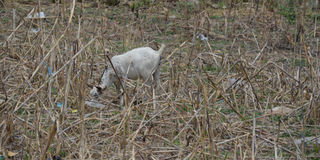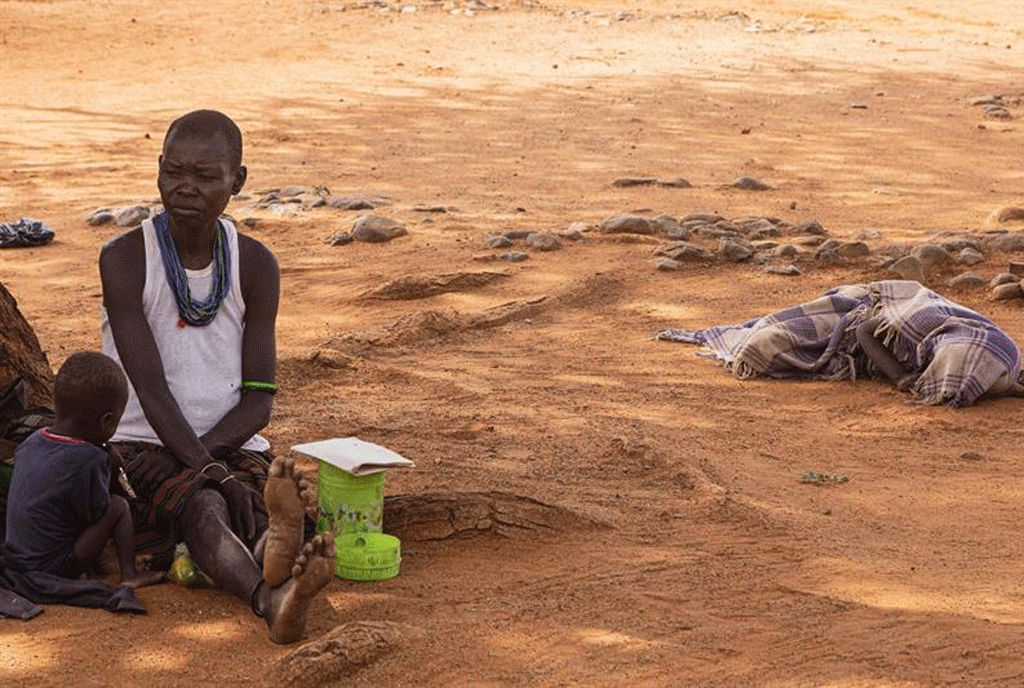West Nile locals face starvation as drought hits crops, animals

A goat searches for green pasture in a garden in Imvepi, Terego District, at the weekend. PHOTO | FELIX WAROM OKELLO
Locals in the West Nile Sub-region face starvation following a dry spell that has withered crops.
The most affected crops include maize, groundnuts, sim-sim, beans and cassava.
The worst affected areas are Terego, Yumbe, Obongi, and Rhino Camp.
Mr John Aciga, a resident of Obongi Town, said the crops have withered beyond recovery.
“The rainfall pattern has become unpredictable because of the destruction of the environment. By this time, we would be getting ready to harvest maize, but unfortunately, most of them are drying before maturity,’’ he said on Monday.
In Nebbi District, Ms Beatrice Acanda, a farmer, said she invested all her money in farming, but the dry spell has brought misery.
“My efforts and resources have been wasted and I do not think I will even get half of what I invested,” Ms Acanda said.
Irrigation schemes
West Nile farmers have been requesting the government to establish irrigation schemes, especially in low lying areas of Wadelai, Rhino Camp and Obongi where the rainfall pattern is unpredictable and the soil texture is poor, but this has not materialised.
Mr Alfred Ocowun, who took a loan from his village savings group to boost his agricultural productivity, said he had hoped to reap big from his one-acre maize garden, but he is now afraid of losing his assets to recover the borrowed money.
“I do not normally invest money in farming, but because of the ongoing economic hardship, I wanted to use this time productively, but my efforts have been affected by the drought,” Mr Ocowun said.
The Nebbi District production officer, Mr Leverius Nyakuni, said field extension workers have been tasked to assess the impacts of the disaster.
“The district has tasked the sub-county leaders to compile comprehensive reports on the dry spell which has affected both growth and production of various crops in different sub-counties for a proper decision to be made,” Mr Nyakuni said.
He adds that the lower sub-counties of Parombo, Nyaravur, Kucwiny, Acana, and Akworo are the most affected with no crops in the garden.
The dry spell has not only affected crops, but also farmers who are rearing animals. Getting pasture has become difficult.
The chairperson Parombo Town Council, Mr Ronald Thomwa, called on the government to intervene.
“The prolonged dry spell is forcing people to sell their domestic animals in order to access food for families, this has increased theft of animals that are being taken to DR Congo,” Mr Thomwa said.




